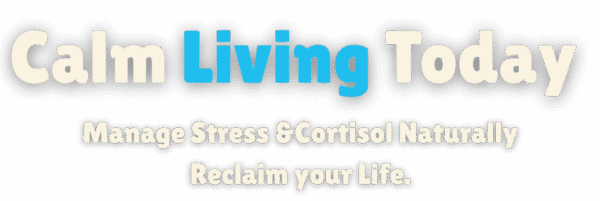Overcoming Depression Naturally by Robert Dorante
I spent almost a decade as a church minister—pouring my heart into people’s lives, offering support, wisdom, and encouragement. But somewhere along the way, I forgot to offer those same things to myself.
Eventually, the weight of constantly giving, the lack of boundaries, and years of poor self-care caught up with me. I burned out—hard. What followed was one of the most difficult battles of my life: depression.
This wasn’t just a rough patch. It was a season where even getting out of bed felt like a mountain climb. A season where joy felt distant, energy disappeared, and motivation seemed like a ghost.
But I made it through. Not quickly. Not easily. But naturally, and step by step.
Now, after almost ten years of working in the homelessness sector—another environment heavy with emotional demands—I’ve learned how to guard my mental health with practical, holistic strategies. I want to share them with you, because maybe you’re walking a similar path, and you need to hear that healing is possible.
“You’re not broken—you’re burdened. And with time, care, and courage, that burden can be lifted.”
Depression Is More Common Than We Think
Before we get into the strategies, let me say this: depression does not mean you are weak.
In fact, the people I’ve seen suffer most deeply are often those who have given the most of themselves—mothers, carers, support workers, pastors, frontline responders, and everyday heroes.
You’re not alone. In fact, over 280 million people globally struggle with depression. That’s roughly 1 in 10 people.
But here’s the truth: You’re not broken. You’re human. And healing is possible.

5 Signs I Knew I Was Battling Depression
Looking back, there were some key signs that I now recognise were red flags—signs I ignored for too long:
I Lost My Joy
Activities I used to love—bonsai, music, family outings—no longer sparked anything. Just… numbness.My Sleep Was a Mess
Either I couldn’t fall asleep, or I’d wake up at 2 or 3 AM wired with worry. Some nights I just lay in the dark, exhausted but alert.I Felt Constantly Drained
It didn’t matter how much I rested—I was always tired. Everything took more effort than it should have.I Pulled Away From People
I started withdrawing from relationships. Texts went unanswered. I avoided phone calls. Isolation became the norm.My Thoughts Turned Dark
I started believing I wasn’t good enough, that I had failed my family, and that I was a burden. It was a dark, heavy fog I couldn’t see through.
5 Holistic Strategies That Helped Me Overcome Depression Naturally
Everyone’s journey is different, but these five natural strategies helped me find my way back:
1. Nature Walks (Even When I Didn’t Feel Like It)
I started walking in nature regularly—even when I felt like lying on the couch. The sunlight, the fresh air, the sound of birds—all of it began to soften the edges of my sadness. Sometimes I cried on those walks. Sometimes I just breathed. But I kept showing up.
2. Strength Training
Lifting weights became more than physical—it was symbolic. I was building back my inner strength too. The discipline of training, even a few times a week, gave me a sense of control again. I began to feel grounded in my body.
3. Sleep and Rhythm Restoration
I created a consistent sleep routine: no screens late at night, a simple wind-down routine, and early bedtime. Over time, my body started trusting the rhythm again. Deep, restorative sleep slowly returned.
4. Eating Real Food
I stopped eating out of convenience and started fuelling my body with real, nourishing food. More protein, fewer processed carbs, steady hydration. My brain fog began to lift and my energy returned.
5. Purpose and Presence With My Sons
What ultimately pulled me out of the pit was a moment of clarity: My boys need me. I have four sons, and they were the anchor in my storm. I began showing up for them again—even imperfectly. Their presence reminded me of who I am and who I’m still becoming.
I Wish I’d Asked for Help Sooner
Let me say something clearly:
If you’re struggling, please don’t wait as long as I did to reach out.
There’s no shame in needing help. Overcoming depression naturally is something you you don’t have to do this alone.
Seeing a doctor, talking to a counsellor, opening up to someone you trust—these aren’t signs of weakness. They’re brave steps toward healing.
If I could go back, I’d ask for help sooner. It might have shortened the journey.

Final Thoughts: You Can Heal
Depression tried to convince me that my best days were behind me. But it was wrong.
Today, I work in a demanding but meaningful role in the homelessness sector. I’ve learned to care for myself while caring for others. I’ve rediscovered joy through my bonsai hobby, time with my sons, and creating Calm Living Today—a space to help others heal naturally too.
If you’re in the thick of it, just know: healing may be slow, but it is possible. Every walk, every meal, every good night’s sleep adds up. You’re not alone on this path.
Keep showing up—one step at a time.
Let’s continue this conversation.
If this post helped you, or if you’d like to share your own story, leave a comment or reach out to me. You’re not alone—and your healing matters.
Walk gently,
Robert Dorante
Founder, Calm Living Today
FAQ About High Cortisol Levels
1. Can depression really be overcome without medication?
Yes, some people are able to overcome depression through natural methods such as lifestyle changes, therapy, social support, and stress reduction. However, everyone’s experience is different. For some, medication can be a vital part of recovery. There’s no shame in either path—what matters is healing.
2. What are the first signs that I might be depressed?
Common early signs include persistent sadness, low energy, loss of interest in things you once enjoyed, trouble sleeping, and feeling disconnected from others. If you’re noticing several of these signs, it’s a good idea to talk to someone you trust or seek professional support.
3. What are the best natural ways to treat depression?
Some proven natural strategies include:
Daily movement or exercise (like walking or strength training)
Getting quality sleep and maintaining a routine
Spending time in nature
Eating a nutrient-dense, anti-inflammatory diet
Journaling or talking with supportive people
Practicing mindfulness or gratitude
It’s not about doing them all at once—it’s about starting small and building habits over time.
4. How long does it take to feel better naturally?
Natural recovery can be gradual. For some, it may take weeks or months; for others, longer. It depends on many factors, including the root causes, lifestyle, support systems, and stress levels. Be patient with yourself—healing is not linear.
5. Can I heal depression on my own?
You can make great progress with self-help strategies, but no one should feel like they have to do it alone. Reaching out for support from a doctor, counsellor, or trusted friend can be an important part of your healing journey. There’s strength in asking for help.
6. What role does exercise play in overcoming depression?
Exercise, especially strength training and walking in nature, can boost mood-regulating chemicals like endorphins and serotonin. It can also improve sleep, reduce anxiety, and help rebuild your sense of purpose and confidence—all key elements in overcoming depression.
Disclaimer: This content is for informational purposes only and does not substitute professional medical or psychological advice. Please consult a qualified healthcare provider for personalized guidance.




